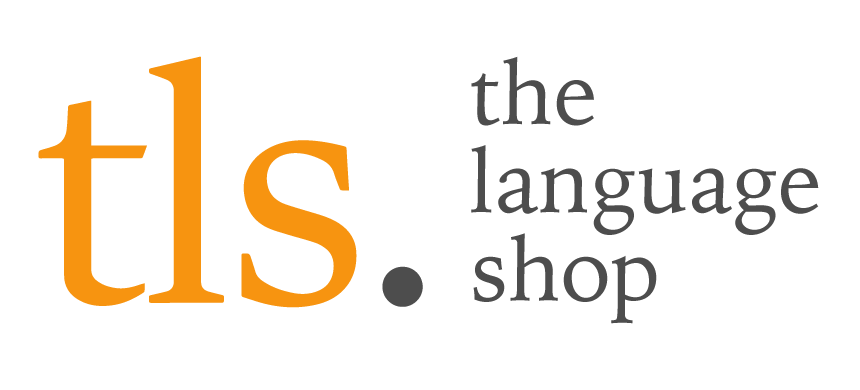TLS portal: much more than bookings
Have you explored our portal yet?
As well as being a one stop space for managing bookings, it has all kinds of information, training and insights that could help you to get the absolute best from your experiences with us.
Catch our guides and videos on how to access our various services, such as our telephone or video interpreting, which could save you time and money. Find out best practice on working with different groups of service users or in a variety of interpreting scenarios.
Got suggestions for anything you would like to see on the portal? Contact enquiries@languageshop.org
Your month ahead - important dates for February
14, Lailat al-Bara’ah, Islam
Lailat al-Bara’ah translates into English as ‘night of forgiveness’ and marks an evening in which many Muslims pray for forgiveness and fast. Some believe that your destiny for the year ahead is determined by God on this night. The occasion usually falls roughly two weeks before the start of Ramadan, the Holy Month.
23, Meatfare Sunday, Orthodox Christian
This is the third Sunday in the three-week pre-Lent period, and from this point until the end of Lent, observant Orthodox Christians refrain from eating meat (though they can still eat dairy and eggs for the final week until Lent begins). The day focuses on Christ’s final judgement, aiming to focus followers’ minds on good deeds.
January’s dates at a glance
Religious/cultural
2 Imbolc/Candlemas, Wicca and Pagan
2 Vasant Panchami, Hindu, Sikh and Jain
2 Zacchaeus Sunday, Orthodox Christian
3 Setsubun-sai, Shinto
9 Triodion begins, Orthodox Christian
10 Guru Harrai Jayanti, Sikh
11 Thaipusam, Hindu
13 Magha Puja, Buddhist
13 Tu Bishvat, Judaism
14 Valentine’s Day, Christian
14. Lailat al Bara’ah, Islam
15 Nirvana Day, Buddhist
16 Sunday of the Prodigal Son, Orthodox Christian
22 Feast of the Chair of Saint Peter, Catholic Christian
22 Saturday of Souls, Orthodox Christian
23 Meatfare Sunday, Orthodox Christian
25-28 Intercalary days, Baha’i
26 Maha Shivratri, Hindu
28 Losar begins, Buddhist
28 Ramadan begins (subject to moon sighting), Islam
Awareness and Events
1 World Hijab Day
1-7 World Interfaith Harmony Week
3-9 UK Race Equality Week
3-9 Children’s Mental Health Week
4 World Cancer Day
6 Time to Talk Day
6 International Day of Zero Tolerance to Female Genital Mutilation
11 Safer internet Day
11 International Day of Women and Girls in Science
12 Red Hand Day for Child Soldiers
15 International Childhood Cancer Day
17 World Human Spirit Day
20 World Day of Social Justice
Language fact file: Tamil
Tamil is mainly spoken in: the Indian state of Tamil Nadu and territory of Puducherry, Sri Lanka and Singapore
Number of native speakers: more than 80 million
Learn some: ‘Vanakkam’ is a very useful Tamil greeting, which can be used at any time of day, in person, over the phone or online!
Fast facts:
Tamil is thought to be one of the world’s oldest living languages, with records dating back as far as the 3rd century BC.
The language is worshipped! Tamil Thāi Temple in Karaikudi, India, is dedicated to the Tamil language. Outside the main shrine are statues of Murthis of Oli Thai (Goddess of Sound) and Vari Thai (Goddess of Letters). The Tamil festival of Pongal on 14 January also celebrates the language.
Tamil has 12 vowels, more than double the number in English. The alphabet contains 247 letters in total – compare that to 26 in the Roman alphabet!
Meet the team at tls (January)
This month, instead of introducing one of our linguists we are meeting a member of the TLS team: Stephanie Bright is our recruitment lead, responsible for attracting and hiring our wonderful legion of linguists.
“A bit about me: I am based in West Yorkshire, working from our northern location. I’m the mum to a soon-to-be teenage boy, and recently acquired puppy."
“My journey into recruitment started in my early 20s. I started working for a well-known leading recruitment agency and for many years to follow, I progressed my career, whether this was working within other business sectors or career advancements. 2021 was the year I joined TLS as our internal lead for recruitment, however I had already worked with TLS as the preferred external recruitment agency contract for the previous 3 years."
“Freelance recruitment is our busiest recruitment area and currently we are on the hunt for face-to-face interpreters to support assignments throughout various boroughs of London, so that is my focus at the moment."
“I’m really looking forward to continuing to grow our bank of interpreters in 2025, so that we can support our customers in their important work.”
Language Fact File: Sylheti
Sylheti is mainly spoken in: the Sylhet region of Bangladesh and the Barak Valley of India
Number of native speakers: Approximately 11 million
Learn some: If you are introduced to some Sylheti speakers, impress them by saying “afnar loge forisito oiya khushi oilam!” This means “nice to meet you”.
Fast facts:
Although it has 11 million speakers and is not fully mutually intelligible with Bengali, it is still considered by many to be a dialect. This has affected efforts to conserve and protect the language.
Sylheti has its own script and folklore tradition. This has been preserved through the centuries in the Sylheti script, Nagri. These stories often reflect Islamic, Hindu and Sufi influences.
Sylheti shares a lot of vocabulary with Fari and Arabic, because of historical trade and interactions between Persia and the nearby Arab countries.
The Linguist Story - December
Every month, we get to know a bit more about one of our linguists. This month, meet Abdus Sattar, who interprets in Bangla and Sylheti.
Tell us about the work you do for TLS.
Most of my interpreting work is primarily within an NHS setting for Bangla and Sylheti speaking patients.
What's been your favourite project at TLS?
I enjoy working within a range of settings such as hospitals, home visits, clinics, social services and mental health. My favourite area to interpret has been Social Services. Using the training I have completed; I have been able to make a real difference in the safeguarding of vulnerable children and adults.
What has been your biggest challenge?
I work for the NHS and The Language Shop, and finding time to support clients who need interpreting has been one of my biggest challenges. I enjoy both roles immensely and use time management and scheduling skills to fulfil bookings for both organisations.
Tell us something interesting about you
Before I completed my training as a professional interpreter, I used to own and run a restaurant, takeaway and grocery shop.
Language Fact File: Greek
Greek is an official language in: Greece, Greek Cyprus, Akrotiri and Dhekelia
Number of native speakers: 13.5 million
Learn some: Greet your Greek friends in the morning with ‘καλημέρα!’ (kalimera) and in the evening with ‘καλησπέρα!’ (kalispera).
Fast facts:
Ancient Greek was written from right to left, like Arabic. Modern Greek is written left to right, like English. However, between those two methods was a phase called the boustrophedon era, when it was written in rotation from right to left and then left to right! Sending translators of this era our sympathies.
It was the first written language to use vowels. Prior to this, all written alphabetic languages consisted of consonants only, much like modern Arabic.
In fact, the word ‘alphabet’ comes from the first two letters of the Greek alphabet: alpha and beta.
Word order in Greek is incredibly flexible and words can pretty much go anywhere. This is helped by the fact that it uses cases, which change the endings of words to show their grammatical function.
The Linguist’s Story - November
Every month, we get to know a bit more about one of our linguists. This month, meet Candy Isufi, an interpreter working in Greek.
Tell us about the work you do for TLS
I interpret for the Greek community using a variety of services. My role as an interpreter is to render the meaning and feeling of what is said into another language in the appropriate register and style, in a range of settings. These include hospitals, GP practices, schools, workplaces and conferences but also from the comfort of my own sofa as I have been doing for the past year, since I no longer live in London.
What's been your favourite project at TLS?
To be honest it’s quite hard for me to choose between two great experiences, so I’ll mention both.
One of my favourite projects at TLS was when I would interpret for the Memory service in Enfield. The professionals there, were always so friendly and it would just brighten my day to hear lovely comments from both, clients and elderly people I was helping then. Oh God I miss that place!
Now as for my second favourite project, I must say was when I took on the role as an assessor and was called to the TLS offices in Newham. That gave me the opportunity to meet some of the lovely faces who are hidden behind the voices I many times speak to on the phone.
What has been your biggest challenge?
My biggest challenge I’d say was travelling and managing to get to work on time. Back in London, when I used to attend F2F bookings for TLS it came with its pros and cons. The pro was that I’d get to see the people in person. Now, the con was that I don’t drive so I was often having to run to catch buses or stay on them in traffic for ages.
Can you tell us about a time your work has made a difference to someone’s life?
Each and every time I attend assignments, I feel my work makes a difference to all of those people’s lives as I’m building that bridge of communication between the professional and the service user. But there is one time that stands out for me and it’s when a young person’s life was potentially in danger. My presence made a very positive impact as the patient felt that they could freely express themselves in their own native language. That I believe made their journey towards recovering from their mental illness so much smoother.
Tell us something interesting about you
Since I was a child, I had an aspiration to become a doctor but also loved learning foreign languages. I believe my role as an interpreter, in a way, combines both of my interests. As I am using and improving my foreign language skills whilst in the meantime gaining so much knowledge in the medical field - this is why I am considering pursuing a career in child psychology in the future. It’s never too late to chase your dreams!
Power Voice training leads to Improved Communication
Power Voice is an online video course designed to help you master clear pronunciation and effective communication techniques that will ‘elevate your vocal skills to new heights’.
When working with our interpreters, communicating clearly will help you to save time, reduce misunderstandings, keep the conversation flowing and optimise the booking.
The course can help improve other areas of your professional life too, offering the chance to hone your public speaking skills, enhance your image at work and increase your chances of career success.
If you would like to know more or apply, please email Samantha.oates@languageshop.org.uk
October dates for your diary
October’s dates at a glance
Religious/Cultural
2 – Feast of the Guardian Angels, Catholic Christian
3 – Sharada Navaratri begins, Hindu
3-4 Rosh Hashanah, Judaism
4 – Feast of St Francis of Assisi, Christian
6 – Fast of Gedaliah, Judaism
9 – Birthday of Guru Ram Das, Sikh
12 – Yom Kippur, Judaism
12 – Dussehra, Hindu
17-23 Sukkot, Judaism
18 – Feast of Saint Luke, Christian
20 – Birthday of the Guru Granth, Sikh
24 – Shemini Atzeret, Judaism
25 – Simchat Torah, Judaism
28 – Feast of Saints Simon and Jude, Christian
31 – All Hallows’ Eve, Christian
31 – Reformation Day, Protestant Christian
Awareness and Events
1 – Anniversary of the Introduction of the Equality Act
1 – International Day of Older Persons
5 – World Teachers’ Day
6 – World Cerebral Palsy Day
10 – World Mental Health Day
10 – World Sight Day
11 – International Day of the Girl Child
11 – National Coming Out Day
15 – International Day of Rural Women
16 – International Pronouns Day
17 – International Day for the Eradication of Poverty
18 – Anti-Slavery Day
18 – World Menopause Day
18 – Show Racism the Red Card’s Wear Red Day
26 – Intersex Awareness Day
29 – World Stroke Day










